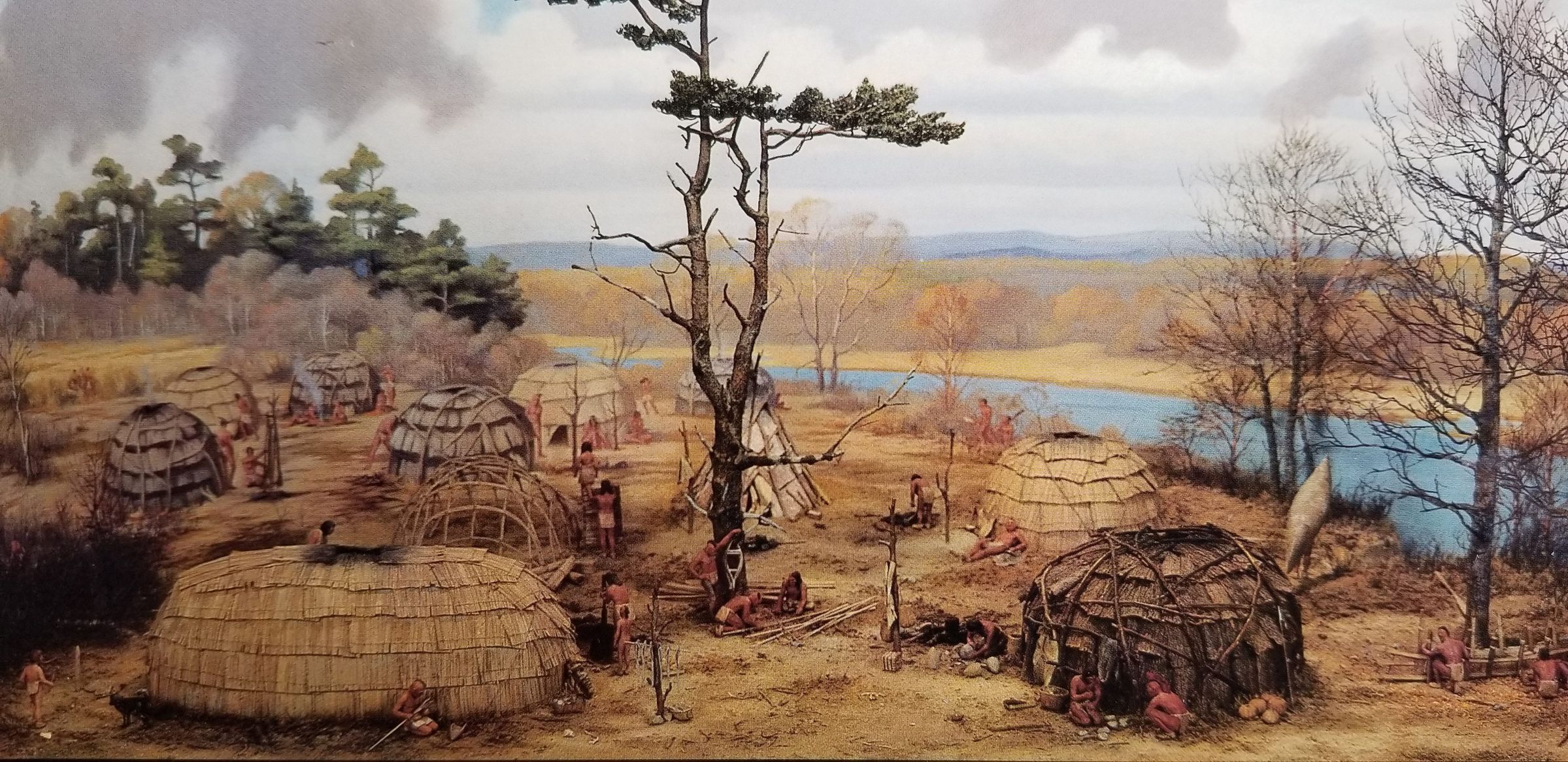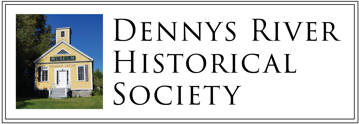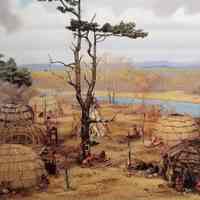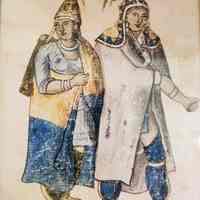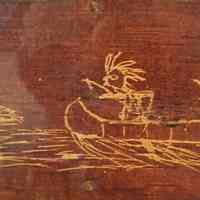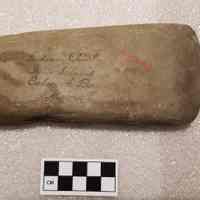Wabanaki Encampment at Reversing Falls
Shell heaps, stone tools, and other domestic remains attest to the presence of Indigenous people at sites at the Reversing Falls and around Cobscook Bay, The name "Cobscook" is derived from the word Kapskuk, which means "boiling water" in Passamaquoddy, and has endured to this day. Through the pen of Donald Soctomah, Tribal Historic Preservation Officer, Sopiel Selmore, Keeper of the History, speaks: “Children, I am going to tell you a story that was told to me by a very old man when I was a young boy. It has to do with creation, it has to do with the land and the water, which is so important to us, because that makes us who we are.” Sopiel put extra wood on the fire, and started to tell the story of the giant ice age and how summer slowly pushed the grasp of winter further away from the land of the Passamaquoddy, exposing the landscape around Meddybemps Lake and the village of N'tolonapemk—meaning “our ancestors’ place.” Archaeology confirms that native Americans first camped at N’tolonapemk around 9000 years ago. As the glacier retreated, and the water level rose, the Dennys River cut a channel immediately south to become the outlet of the lake. The earliest occupants of the village began a pattern of subsistence strategies that were utilized by all of the people that were to follow. This included a seasonal emphasis exploiting the alewife spawning run, fishing for perch, sucker and eels, hunting for large mammals and the hunting or trapping of beaver, muskrat, woodchuck, as well as a variety of birds and turtles. They also collected a variety of plants as evidenced by the charred nutshells, seeds, and other recovered plant fragments. The Dennys River was called “Kethonosk” by the Passamaquoddy, meaning “place for gathering animal scents.” It was their corridor to the sea, as Sopiel describes in the arrival of frostfish during their annual migration from the ocean, and an important source of protein during the winter. The nets made of cedar bark were loaded in the birch bark packs and the men hiked along the frozen river “Kethonosk”, now called Dennys River, to the village known as “Cobscook”. Here the canoes were stored for the voyages on the ocean to the many favorite small streams the frostfish called home. . . The nets were quickly unloaded, and set in the water, within minutes the nets were bulging with fish. The baskets were full of fish after the long day, and as the tide was making its return it was time to load the canoe and follow the current back to the Cobscook launching site. They were met by many of the other fishermen readying for the hike to the village up the Kethonosk to Meddybemps Lake. Arrival back at the village was a happy scene, families were glad that all had returned safe from a dangerous ocean canoe trip.
